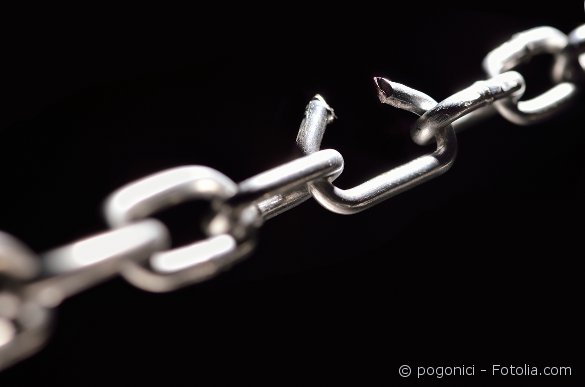Some say “SEO is dead”, or dying. In reality SEO as we “used to practice it” is no longer valid. Looking at a history of Google search changes over the years though, we should have seen the writing on the wall before now. Where link building is concerned, it’s certain old SEO habits have to change – here’s some ideas and reflection –

Allow me to set the context for this article up front. I recently attended a workshop by Bruce Clay Australia which made me rethink certain assumptions I had made over the years working in SEO. While link building is still an important aspect of SEO, its relationship to other strategies has changed significantly.
As with most activities people often take different approaches to doing new things before finding what works best for them, most cling to old habits without readily considering other approaches. Old habits are hard to kick, including using link building predominantly in SEO projects. SEO is all about learning curves too, I guess you could say.
One of my bad habits has been to put too much focus on links and assume that the more quality links I’d build, the less I’d have to worry about other factors, such as content, social, site architecture and some technical configuration. Deep down I knew this wasn’t a sustainable process, but I was already chasing the next link, so I liked to forget about it.
A short timeline of some of the most noteworthy Google algorithm updates shows how having all your (linking) eggs in one basket can really hurt your rankings.
- 2003: Cassandra began looking at co-owned domain linking, hidden links and text.
- This update is kind of a predecessor of the Penguin update. Weeding out low value SEO tactics such as cross-linking all your own websites.
- Hidden links and text on a site, something we laugh at in 2012, were a problem back in 2003. Google finally figured out how to stop people from gaming the system this way.
- 2003: Florida is one of the best known updates which went after keyword stuffing. Google also started keyword stemming, meaning that the amount of competition skyrocketed because you’d no longer be the only one ranking for a term such as “gardening” if that was what you were using on your site. Others who were using variations such as: ”garden, gardens, gardening” now were directly competing in the serps.
- Update Brandy in 2004 focused on content relevancy with LSI and started looking at link neighborhoods. Google upped the ante again.
- The Nofollow attribute was introduced at the beginning of 2005
- All of a sudden a lot of links you might have added to your site, lost the ability to pass link juice.
- Getting new links that did pass value just got a lot harder.
- Personalized results started appearing halfway through 2005. Depending on a user’s search history, each might would see different results from other users. If people didn’t already find your site before this update, you now had less of a chance to show up above their favored sites.
- October 2005 was when Google released Jagger, an update that shook up tactics such as reciprocal linking, link farms and paid links.
- 2005 also saw Google roll out Big Daddy, an infrastructure change which allowed Google to crawl and index more pages than ever before, thus increasing competition for almost every site. On the other hand, there’s now a supplemental index where all good SPAM sites end up, never to be heard of again.
- 2007 signaled the end for the traditional 10 SERP page. Universal search adds news, video, local and images.
- Vince in 2009 wiped a lot of smaller contenders from the SERPs because Google really started to favor big brands.
- May Day in 2010 made it clear that thin content wasn’t good enough anymore to capture long-tail traffic.
- At the end of 2010, Google told us that they didn’t ignore social signals when determining ranking.
- Panda v1 began at the start of 2011. We all know the resultant branding effect on cute bears. Many a webmaster now fears the beast known as Panda, and all its updates. Currently at v4, this update primarily targets low quality and thin content. (theoretically)
- Google stopped providing an important metric on which a lot of sites got to reply; keyword referrals. We’re all familiar with the [not provided] reference in Google Analytics.
- This year, Penguin wreaked havoc for link builders, MFA sites got penalized because of the content to ad ratio, and the EMD update has put an end to manipulation of ranking by buying keyword domains.
*sources: seomoz, seroundtable insidesearch
History teaches us that when optimizing a site, we should really pay equal attention to all the aspects of the campaign. Expert SEOs will still explore valid, even novel ways to refine the impact links have. Some good examples of uncommon strategies are in this post by Pratik Dholakiya. I’m NOT suggesting links don’t matter. However, looking at the progression above, it’s clear now that link building, as we once knew it, was on the way out long before Panda or Penguin. Interestingly though, there’s only a limited number of factors that Google can efficiently use to work its ranking magic. Another “problem” Google has, is that in continually fine tuning their system, sometimes unpredictable things can happen. Factors once weighted heavily, become obsolete, and vice versa.
The trick for the optimizer is to be consistent across the board when working on sites. Logic demands that the webmaster who gets this right will come out on top of every single update Google throws out, over the long haul.
Image credit: Broken link – courtesy © pogonici – Fotolia.com




